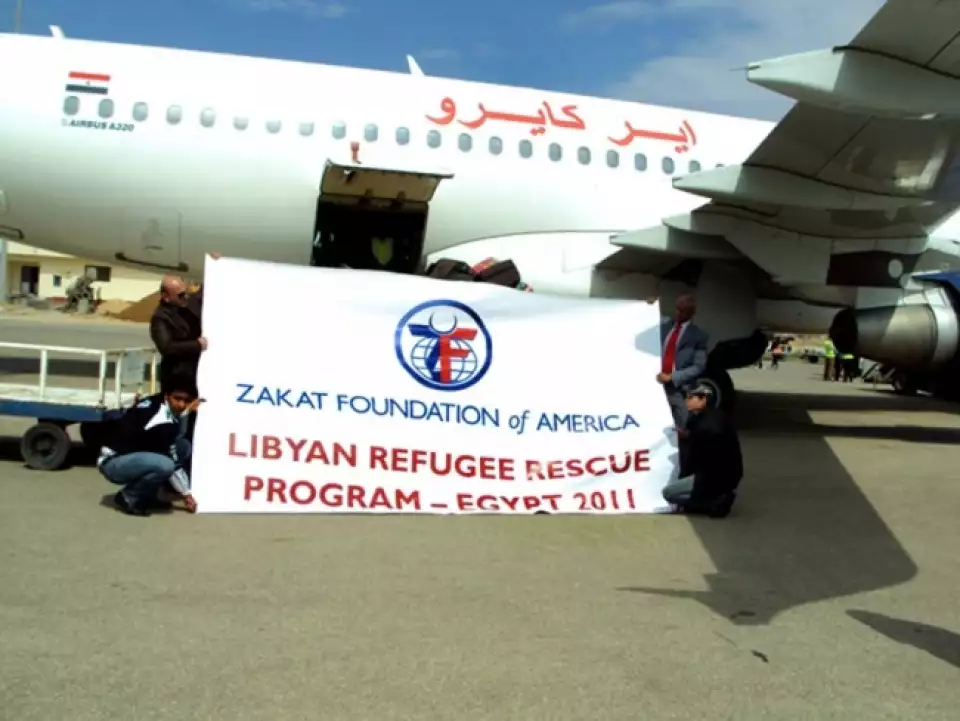Since the start of the crisis in North Africa, 500,000 people have fled the turmoil in Libya. Many received help from governments and NGOs to return home, yet thousands of refugees remain stranded at Libya’s borders without the means to go home. They are left wondering how long they will have to endure the living conditions of refugee camps.
Zakat Foundation of America, in partnership with United Nations High Commissioner for Refugees (UNHCR) and International Organization for Migration (IOM), is helping refugees stranded by the Libyan crisis return home.
In March 2011, Zakat Foundation of America chartered a flight for 178 Chadians, including many families, to return to Chad. The refugees had been stuck at the Libyan-Egyptian border for several weeks. Zakat Foundation of America supported their air travel from Marsa Matrouh Airport, just over the Libyan border in Egypt, to N’Djamena International Airport in the central African country of Chad.
Zakat Foundation of America’s Program Coordinator on the Libyan-Egyptian border calls the situation of most refugees at the border a “tragedy.” The camps are overwhelmed, and are no longer able to provide adequate housing for the 5,000 refugees in the area.
Many of the refugees fled Libya, leaving “everything behind [even] their passports and identity cards.” Then they found themselves abandoned and without hope at the border. But Zakat Foundation of America’s team worked tirelessly with Egyptian officials to prepare the temporary legal documents that would allow the Chadian refugees to fly home.
An estimated 1.5 million Sub-Saharan Africans worked in Libya. These vulnerable people who fled Libya without resources, will continue to need assistance as the conflict persists. Other migrant workers, from countries as diverse as Egypt, Bangladesh, and the Philippines also need help to go home.
Please rush your donation in the attached envelope or donate via our website, zakat.org, to help us shelter, feed, provide health care and transport refugees and internally displaced Libyan civilians during this crisis.







